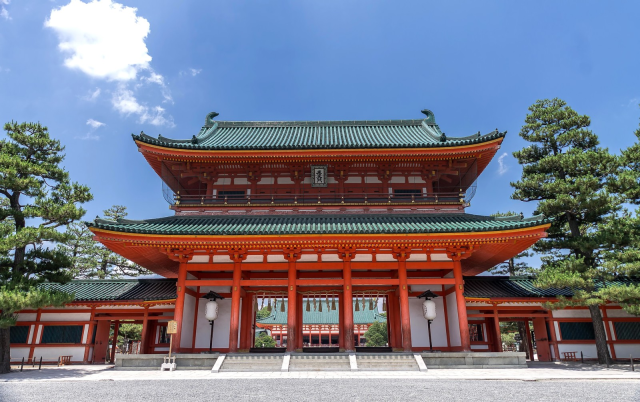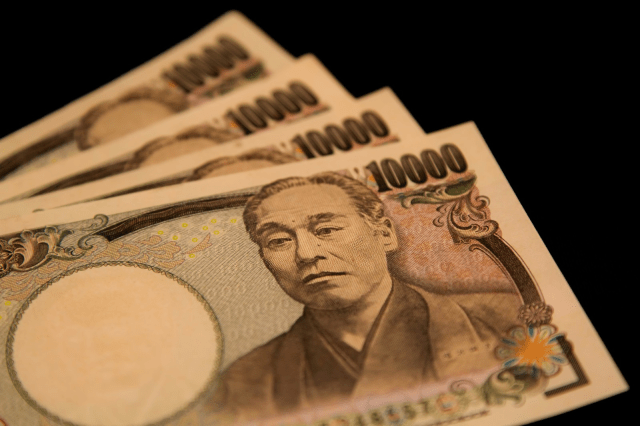
Fantasizing about relocating to Japan’s ancient capital? Here’s what it’ll cost you per month, and no, a minimum-wage job isn’t going to cut it.
Spend much time on the Internet, and you’ll meet plenty of overseas Japan fans who’re dreaming of moving to the country. It’s an understandable ambition, since Japan is, in many ways, a pretty awesome place to live.
Of course, you can’t live off awesomeness alone. You’ll still need enough money for rent, food, and various other expenses. But maybe you’re hoping to keep your expenses low by settling down not in the bright lights of Tokyo, but in the more traditional, tranquil, and slower-paced city of Kyoto. In that case, how much money would you need to earn to live a normal life as a single person?
That’s the question labor organization Kyoto Sohyo wanted to answer, and so it conducted a survey, with the help of the University of Shizuoka, polling roughly 400 men in their teens, 20s, and 30s who live alone in Kyoto. The survey’s goal was to find out how much you need to be making every month to “live normally,” and the amount they came up with was 245,785 yen (US$2,255), with a nearly identical figure of 242,735 yen for women who were also polled.
The survey results broke down the individual men’s living expenses as:
● Food (groceries and eating out): 44,441 yen
● Housing: 41,667 yen
● Utilities: 7,419 yen
● Furniture/home supplies: 3,836 yen
● Clothing, shoes: 5,921 yen
● Medical insurance/expenses: 1,137 yen
● Commuting/transportation/phone/Internet: 18,612 yen
● General entertainment: 27,510 yen
● Hairdressing: 3,726 yen
● Grooming supplies: 687 yen
● Miscellaneous (including party expenses and presents) : 23,434 yen
● Taxes/national pension payments: 49,595 yen
● Savings: 17,800 yen
The itemized women’s expenses were more or less the same, with a roughly 9,000-yen cheaper food expenditure being about the largest difference. It’s also worth bearing in mind that the figures represent average monthly expenses, the survey isn’t necessarily saying the average person will be buying 5,921 yen’s worth of clothing each and every month, but that overall clothing expenses throughout the year would work out to an average of that amount per month.
Taking a closer look at the general entertainment category, that number includes 4,988 yen of durable goods shopping for things such as TVs or audio equipment, 5,000 yen for day trips, 7,500 yen for overnight travel, and 8,000 yen of uncategorized leisure expenses, which is where the cost of movie or concert tickets would go, for example. The researchers specifically mentioned that they built the budget to include the cost of periodic visits back home to visit one’s parents, although with the assumption that said parents live in Japan.
Once it had its “normal Kyoto life” budget worked up, Kyoto Sohyo next calculated how much you’d have to earn, at an hourly rate, in order to cover the expenses the survey laid out. Working 8 hours a day and five days a week, and assuming that you take time off for New Year’s, the Obon summer holiday period, and other Japanese holidays, Kyoto Sohyo came up with an average of 150 hours worked per month, which means you’ll need to be making 1,639 yen an hour, before taxes, to follow the survey’s budget and live the life it depicts.
However, there’s one last number the researchers want people to pay attention to: 882, Kyoto’s minimum wage. A full-time, minimum-wage employee working 150 hours would make just 132,300 yen per month, and minimum wage would need to be increased more than 85 percent to give that minimum-wage worker Kyoto Sohyo’s “normal” lifestyle.
One could argue, however, that Kyoto Sohyo’s normal-life budget isn’t exactly a picture of a completely bare-bones lifestyle. 27,510 yen a month is by no means a lavish entertainment budget, but it’s not exactly peanuts either, especially considering that it includes an average of 12,500 yen per month for pleasure travel. There’s also the fact that going out to eat, one of the most common leisure activities, is covered in the food section of the budget.
So it might be more accurate to call Kyoto Sohyo’s model an enjoyable-life budget, since while it still requires you to be pretty thrifty, it’s structured with the assumption that you’re not going to be taking on extra shifts to make ends meet or living a stoic monk-like existence, but rather that you’ll be working essentially 9 to 5, and going out on your days off to do things like travel, eat in restaurants, watch movies with friends, and go shopping.
Because of that, it seems like it’d definitely be possible to survive in Kyoto on less than 245,785 yen, especially if, as a foreigner, the sightseeing destinations you’re primarily interested in seeing are within the confines of Kyoto itself, which would cut down on the Kyoto Sohyo budget’s travel expenses. That said, remember what we said earlier about Kyoto Sohyo’s numbers painting a picture of an enjoyable life. No matter how much you love Japan, your enjoyment is going to increasingly fade the closer you get to the poverty line, so if you’re daydreaming of moving to Kyoto, looking for a minimum-wage job because you don’t have the language or professional skills to find something that pays better, and just enjoying living a Kyoto life, be aware that you’re probably going to end up in the red very quickly.
Source: Kyoto Sohyo (1, 2) via NHK News Web via Jin
Top image: Pakutaso
Insert images: Pakutaso (1, 2, 3)
● Want to hear about SoraNews24’s latest articles as soon as they’re published? Follow us on Facebook and Twitter!
Follow Casey on Twitter, where his decision to move to Japan has worked out pretty well.




 How much money do you need to raise a family with a “normal life” in Kyoto? Study investigates
How much money do you need to raise a family with a “normal life” in Kyoto? Study investigates Is 150,000 yen (US$1,389) a month enough to live on in Tokyo? Depends what kind of life you want
Is 150,000 yen (US$1,389) a month enough to live on in Tokyo? Depends what kind of life you want How much money do you need to live in your own apartment in Japan?【Survey】
How much money do you need to live in your own apartment in Japan?【Survey】 How much money do you need for a studio apartment in downtown Tokyo?
How much money do you need for a studio apartment in downtown Tokyo? Living costs of Tokyo families now average 23.5 million yen over half a lifetime
Living costs of Tokyo families now average 23.5 million yen over half a lifetime Highest Starbucks in Japan set to open this spring in the Tokyo sky
Highest Starbucks in Japan set to open this spring in the Tokyo sky Development of Puyo Puyo puzzle game for use in nursing homes underway
Development of Puyo Puyo puzzle game for use in nursing homes underway Skyscraper sized Pokémon cards to appear in Tokyo all year long in Tocho projection mapping event
Skyscraper sized Pokémon cards to appear in Tokyo all year long in Tocho projection mapping event Japan has only one airport named after a samurai, so let’s check out Kochi Ryoma【Photos】
Japan has only one airport named after a samurai, so let’s check out Kochi Ryoma【Photos】 Burning through cash just to throw things away tops list of headaches when moving house in Japan
Burning through cash just to throw things away tops list of headaches when moving house in Japan Boro the Caterpillar anime now showing at the Ghibli Museum in Tokyo 【SoraReview】
Boro the Caterpillar anime now showing at the Ghibli Museum in Tokyo 【SoraReview】 Is Sapporio’s Snow Festival awesome enough to be worth visiting even if you hate the snow? [Pics]
Is Sapporio’s Snow Festival awesome enough to be worth visiting even if you hate the snow? [Pics] We eat 13 of the most highly recommended sushi items at Sushiro and pick the best of the best
We eat 13 of the most highly recommended sushi items at Sushiro and pick the best of the best Sushi restaurant in Tokyo serves up a plate of “old guy” for only 200 yen
Sushi restaurant in Tokyo serves up a plate of “old guy” for only 200 yen Japanese convenience store chain’s new matcha sweets are heaven for green tea lovers
Japanese convenience store chain’s new matcha sweets are heaven for green tea lovers The 10 most annoying things foreign tourists do on Japanese trains, according to locals
The 10 most annoying things foreign tourists do on Japanese trains, according to locals Starbucks Japan releases new sakura goods and drinkware for cherry blossom season 2026
Starbucks Japan releases new sakura goods and drinkware for cherry blossom season 2026 Japan has trams that say “sorry” while they ride around town…but why?
Japan has trams that say “sorry” while they ride around town…but why? Tokyo Skytree turns pink for the cherry blossom season
Tokyo Skytree turns pink for the cherry blossom season Japan’s new “Cunte” contact lenses aren’t pronounced like you’re probably thinking they are
Japan’s new “Cunte” contact lenses aren’t pronounced like you’re probably thinking they are Shibuya Station’s Hachiko Gate and Yamanote Line stairway locations change next month
Shibuya Station’s Hachiko Gate and Yamanote Line stairway locations change next month Yakuzen ramen restaurant in Tokyo is very different to a yakuza ramen restaurant
Yakuzen ramen restaurant in Tokyo is very different to a yakuza ramen restaurant Starbucks Japan adds new sakura Frappuccino and cherry blossom drinks to the menu
Starbucks Japan adds new sakura Frappuccino and cherry blossom drinks to the menu Japan’s newest Shinkansen has no seats…or passengers [Video]
Japan’s newest Shinkansen has no seats…or passengers [Video] Foreigners accounting for over 80 percent of off-course skiers needing rescue in Japan’s Hokkaido
Foreigners accounting for over 80 percent of off-course skiers needing rescue in Japan’s Hokkaido Super-salty pizza sends six kids to the hospital in Japan, linguistics blamed
Super-salty pizza sends six kids to the hospital in Japan, linguistics blamed Starbucks Japan unveils new sakura Frappuccino for cherry blossom season 2026
Starbucks Japan unveils new sakura Frappuccino for cherry blossom season 2026 Foreign tourists in Japan will get free Shinkansen tickets to promote regional tourism
Foreign tourists in Japan will get free Shinkansen tickets to promote regional tourism Take a trip to Japan’s Dododo Land, the most irritating place on Earth
Take a trip to Japan’s Dododo Land, the most irritating place on Earth Naruto and Converse team up for new line of shinobi sneakers[Photos]
Naruto and Converse team up for new line of shinobi sneakers[Photos] Is China’s don’t-go-to-Japan warning affecting the lines at a popular Tokyo gyukatsu restaurant?
Is China’s don’t-go-to-Japan warning affecting the lines at a popular Tokyo gyukatsu restaurant? Survey asks foreign tourists what bothered them in Japan, more than half gave same answer
Survey asks foreign tourists what bothered them in Japan, more than half gave same answer Japan’s human washing machines will go on sale to general public, demos to be held in Tokyo
Japan’s human washing machines will go on sale to general public, demos to be held in Tokyo Starbucks Japan releases new drinkware and goods for Valentine’s Day
Starbucks Japan releases new drinkware and goods for Valentine’s Day We deeply regret going into this tunnel on our walk in the mountains of Japan
We deeply regret going into this tunnel on our walk in the mountains of Japan Studio Ghibli releases Kodama forest spirits from Princess Mononoke to light up your home
Studio Ghibli releases Kodama forest spirits from Princess Mononoke to light up your home Major Japanese hotel chain says reservations via overseas booking sites may not be valid
Major Japanese hotel chain says reservations via overseas booking sites may not be valid Put sesame oil in your coffee? Japanese maker says it’s the best way to start your day【Taste test】
Put sesame oil in your coffee? Japanese maker says it’s the best way to start your day【Taste test】 No more using real katana for tourism activities, Japan’s National Police Agency says
No more using real katana for tourism activities, Japan’s National Police Agency says 11 cheapest Tokyo neighborhoods to rent an apartment in show living here’s not an impossible dream
11 cheapest Tokyo neighborhoods to rent an apartment in show living here’s not an impossible dream Universal Studios Japan looks to expand, diversify its workforce with new employee incentives
Universal Studios Japan looks to expand, diversify its workforce with new employee incentives Over 50 percent of single Japanese women in their 20s struggle to make ends meet, survey says
Over 50 percent of single Japanese women in their 20s struggle to make ends meet, survey says How many hours a month do anime artists work in Japan? Survey finds crazy number, unhappy workers
How many hours a month do anime artists work in Japan? Survey finds crazy number, unhappy workers How much money are Japanese people willing to lend their romantic partners?【Survey】
How much money are Japanese people willing to lend their romantic partners?【Survey】 Kyoto may be getting more modern, tall buildings as city relaxes development limits
Kyoto may be getting more modern, tall buildings as city relaxes development limits Wage hell — Japanese office worker reveals soul-crushing past paycheck for 171 hours of overtime
Wage hell — Japanese office worker reveals soul-crushing past paycheck for 171 hours of overtime Kyoto families angered by new policy forcing high school students to buy tablets at own expense
Kyoto families angered by new policy forcing high school students to buy tablets at own expense Crazy-cheap Japanese apartment for less than 140 bucks a month comes with headaches every day
Crazy-cheap Japanese apartment for less than 140 bucks a month comes with headaches every day Kyoto’s crazy expensive luxury chirimen nut clusters cost as much as a lunch, but are they worth it?
Kyoto’s crazy expensive luxury chirimen nut clusters cost as much as a lunch, but are they worth it? Kyoto will abolish one-day bus passes to combat tourism overcrowding
Kyoto will abolish one-day bus passes to combat tourism overcrowding Japan’s bonenkai parties are the worst thing about the end of the year. Here’s how to fix them
Japan’s bonenkai parties are the worst thing about the end of the year. Here’s how to fix them Japanese avoiding domestic travel as foreign tourists increase, possibly creating vicious cycle
Japanese avoiding domestic travel as foreign tourists increase, possibly creating vicious cycle